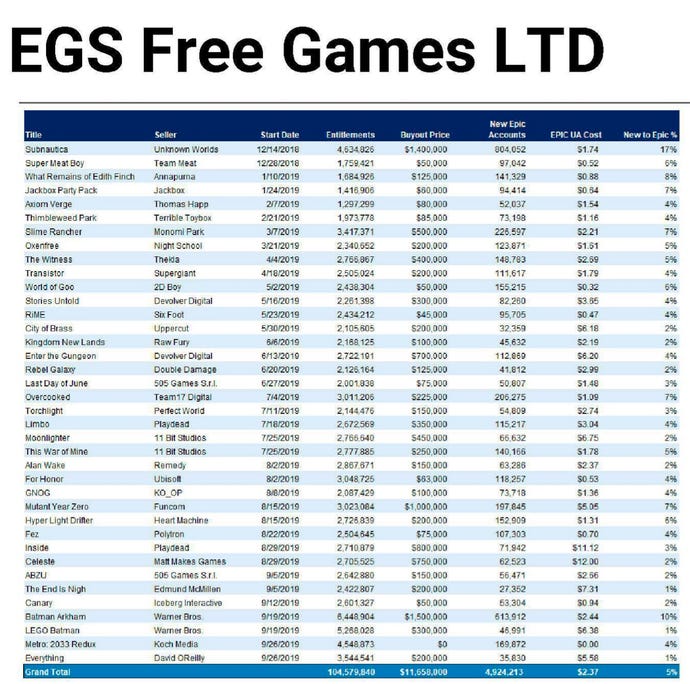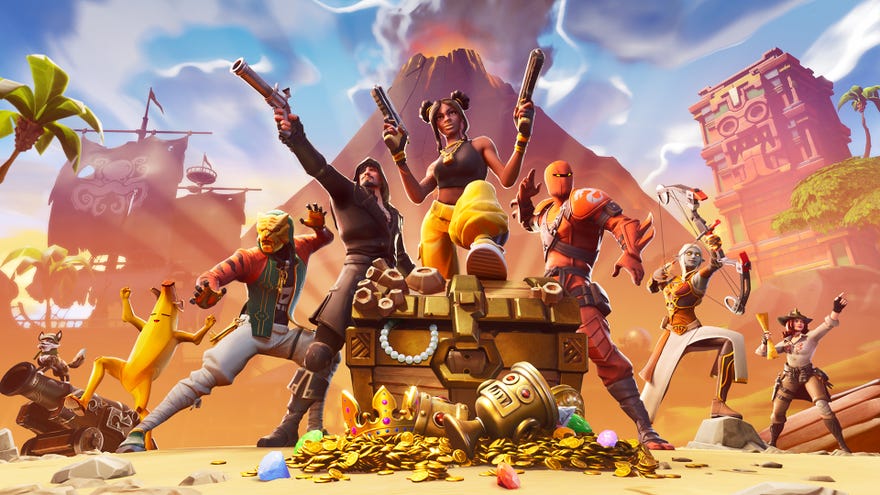Epic Games spent nearly $12 million giving away free games in their first nine months
They paid $1.5 million for Subnautica alone
The trial between Epic Games and Apple kicked off yesterday, almost seven months after Epic first filed an antitrust lawsuit against their fruity foes. In the lead up to the court case, we've seen plenty of info come out about how the two companies operate. But now, it seems some financial documents have been made public that Epic most likely did not want to be made public. They reveal that the company paid game developers almost $12 million (around £8.6 million) to be able to release their games for free on the Epic Games Store in the first nine months of its life.
In a document spotted by GameDiscoverCo founder Simon Carless, you can see a list of all the free games Epic released on their store between December 2018 and September 2019, as well as the whopping amounts of money they spent on each one.
According to Carless, this doc is amongst a few that were accidentally released early. They were briefly removed, but seem to be back up now. You can find the full doc right here (which has the lovely header "HIGHLY CONFIDENTIAL - ATTORNEY'S EYES ONLY"), amongst loads of other documents pertaining to the court case.

The most Epic appeared to pay for a game was $1.5 million for Batman: Arkham trilogy, with Subnautica not far behind at $1.4 mil, and Mutant Year Zero costing a smooth £1 mil. On the lower end, they paid just $50,000 for Super Meat Boy, $45,000 for Rime, and, well, nothing for Metro: 2033 Redux - it seems Koch Media let them have that one for free.
The slightly more important stats on that document, however, are the "UA (user acquisition) costs" and "new Epic accounts" fields. Each time Epic does a freebie, they monitor how many new users have made accounts to claim it. The most successful one here by a long shot was Subnautica: the doc says that 804,052 new accounts were made to nab it, and Epic reckon they spent $1.74 acquiring each of those new users.
On the opposite side of that, it looks like the worst performing freebie by these metrics was Celeste. Epic paid $750,000 for the excellent indie platformer, and in return only 62,523 new accounts were made to redeem it, costing them $12 per new user.
Regardless, it all still adds up to a lot of new people looking at the Epic Games Store. Unfortunately, it doesn't seem like a lot of those people are sticking around to actually buy any games, because the document also says that only 7% of users who nabbed a freebie have made a purchase.
I can't help but wonder if the weekly free games giveaways have a shelf life with stats like that. Though, Epic boss Tim Sweeney has previously said that the Epic Games Store isn't profitable and won't be until 2023, so it all appears to be part of the plan.
Elsewhere in "good lord Epic has a lot of money" news, last month court documents revealed they spent $444 million to secure exclusive games for their store in 2020. As the trial continues, I imagine these aren't the last financial documents we'll see.


